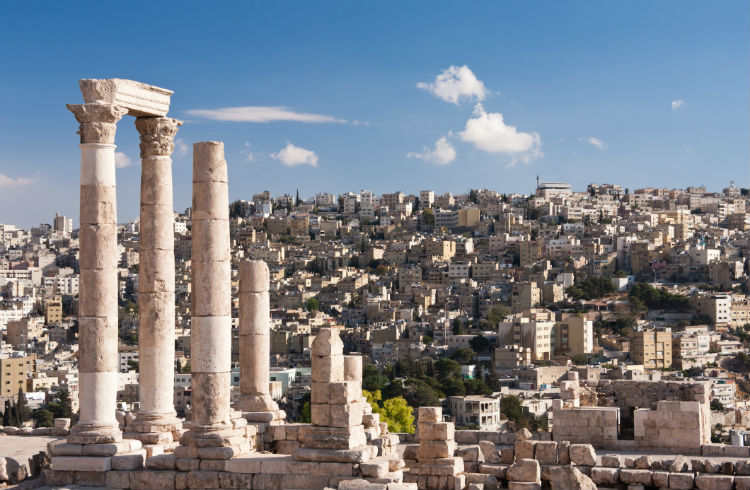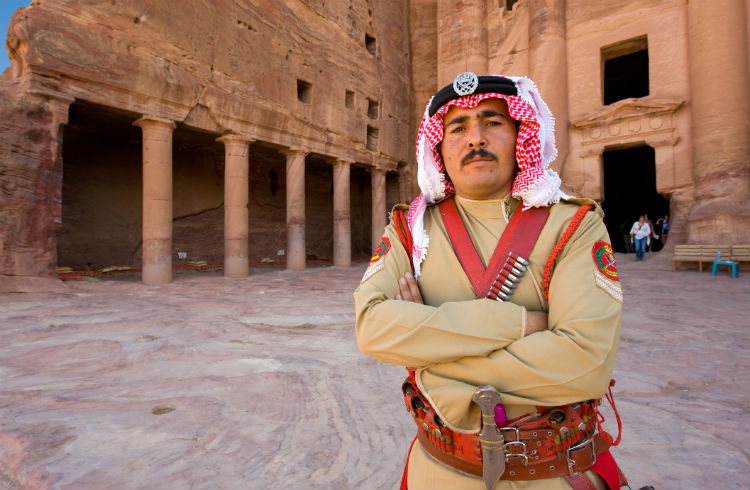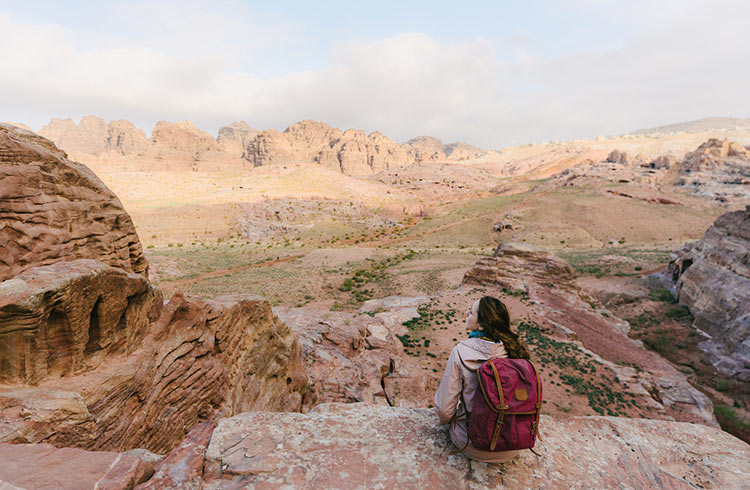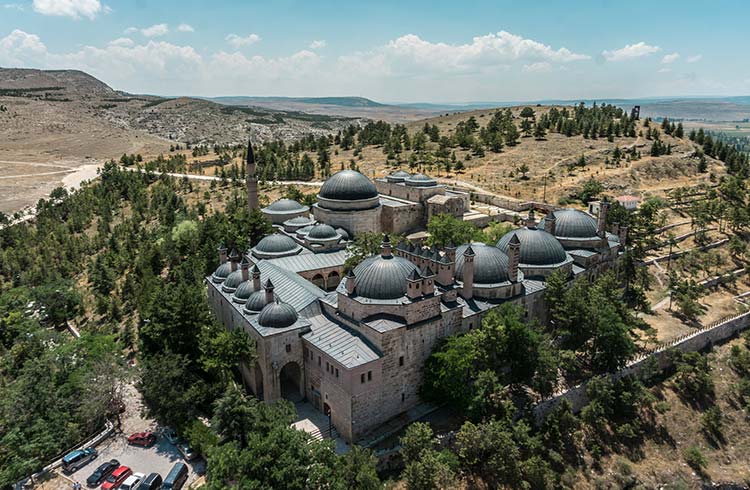Local Laws in Jordan: What Travelers Need to Know
Some of Jordan’s laws and customs may seem unfamiliar to visitors but it’s important to know about them – and respect them – during your visit. Here's what to know about Islam in Jordan, whether alcohol is legal, protocols around taking photos and more.
 Photo © iStock/nailzchap
Photo © iStock/nailzchap
Jordan may be one of the most progressive countries in the Middle East but as much of Jordanian law is rooted in its Arab-heritage Muslim tradition, some of the rules and customs may be unfamiliar to visitors. For a safe and smooth trip read up on these Jordan travel tips and familiarize yourself with local laws and customs.
Religion and faith in Jordan
It may come as no surprise that around 92% of Jordanians are Muslim (93% of them being Sunni Muslim). Consider that while Jordan may be home to one of the oldest Christian communities in the world (about 6% of the population is Christian), technically, it's illegal to encourage conversion to the Christian faith and certain sects of Christianity, such as Jehovah's Witnesses, are not even officially recognized as religions.
Also, if you happened to have read somewhere online that attempting to convert a Muslim is illegal in Jordan, well, that’s not really true. The Jordanian constitution and law do not explicitly ban Muslims from converting to another religion, and there are no penalties under civil law for doing so but Muslims who do convert to another religion face societal and governmental discrimination. It’s 100% okay to have conversations with Jordanians about various religions – talk about your own religion, ask questions about theirs, share, learn, and be merry – just don’t get too carried away.
Drugs, alcohol, and controlled substances
Contrary to popular belief, both visitors and locals are allowed to drink alcohol in some Middle Eastern countries and Jordan is one of them. While alcohol is, technically, considered a controlled substance in Jordan, fines for public intoxication or drinking outside a bar are far less serious than those for the possession, use, or trafficking of harder drugs.
If you attempt to bring marijuana, cocaine, heroin, or any other drug into the country and they’re discovered, the authorities could be very heavy-handed. Even if marijuana is legal in your home state or country and even if you have a doctor-issued medical marijuana prescription, know that it won’t be valid in Jordan so leave the recreational substances at home.
Driving in Jordan
It’s quite possible to get around the country by bus, ride share, private taxi, and shared taxi, but if you do plan on renting a car, keep in mind that, in Jordan, the driver is always considered guilty in an accident. A driver who is deemed guilty may have to cough up heavy compensation payments to other drivers and to pedestrians involved. Technically, the driver could also be imprisoned, but this rarely happens.
According to Ayman Abd Alkareem, the General Manager of the adventure travel company, Experience Jordan, Jordanians often say “the driver is always guilty” simply because it’s not easy to prove a pedestrian was at fault while crossing the road. According to Abd Alkareem, drivers are often found not-guilty in Jordan and he believes the phrase became popularized as a way to urge all drivers to drive carefully. Just like in other countries, when it comes to accidents between cars, the outcome can never be perfectly predicted and often depends on how insurance companies handle it.
Sexuality and LGBTQ+ travelers
Like most Muslim countries, homosexuality, the possession of pornographic material (even in the privacy of one’s home), and the consumption of alcohol outside of approved venues is not exactly celebrated in Jordan. And while the Middle East is definitely not leading the way in terms of LGBTQ+ rights, it’s also probably not as conservative as many people assume.
Homosexuality is legal in Jordan and the country even has a small LGBTQ+ movement, but public displays of affection (even between heterosexual couples) is frowned upon.
Jordanians living in large cities like Amman and Aqaba and in well-traveled places, such as Petra and Wadi Rum, are accustomed to seeing and meeting people from all different cultures and backgrounds. LGBTQ+ travelers do not typically have any issues in Jordan but they may draw some stares if they are affectionate in public. This is especially the case in rural areas and smaller villages.
Death sentence
Like many countries, including Singapore and the United States, Jordan also imposes the death penalty in the case of extremely serious offenses. Given that most travelers do not visit Jordan planning to commit treason or terrorism, this very likely will never apply to you but given that many Middle Eastern countries are often wrongly categorized as “extreme,” we wanted to break this down a bit. You will not risk death for wearing shorts, reading Western newspapers, or drinking alcohol in Jordan. That said, when there has been civil unrest in the region, the Jordanian government, like most governments, may be more anxious about foreigners speaking out against the status quo.
Sensitive photos
Taking pictures of government and military buildings in Jordan is forbidden, as it is in many places around the world. Are you sensing a theme here? The Middle East often gets a bad rap when it comes to security and customs but when you think about it, many of their rules also exist all over the world, including in English-speaking countries. If you do try to take a picture of a government building, you could get a stern warning, a fine, or a short imprisonment, depending on the mood of the guards.
Also, though it is technically not illegal, it's considered extremely rude (almost to the point of public indecency) to take a picture of someone without their consent. This is especially true of Bedouin women, who typically never consent to having their photo taken. Under absolutely no circumstances should you ever take a picture of a Bedouin woman without her permission but you may be given permission to photograph the woman’s hands. Come to think of it, it’s rude to take someone’s picture without asking anywhere in the world. If this is news to you, consider reviewing responsible photography tips before your trip.
Luggage searches
When you’re at the airport leaving Jordan, your luggage may undergo more security checks than you’re accustomed to. Not only are security officers typically looking for illegal drugs, but they are also looking to stop thoughtless visitors attempting to escape the country with precious antiquities.
Customs and manners in Jordan
For the most part, people are understanding and they won’t expect you to understand all the finer points of Jordanian customs and manners, though it will always be much appreciated if you attempt to learn. At a bare minimum, it is essential to respect how people live and worship even if it differs from your own experience, lifestyle, or personal beliefs.
If you visit places of religious significance, always display the utmost level of respect for whatever rules and customs are in place, regardless of your own political beliefs or religious philosophy. Dress modestly, behave courteously, and follow the lead of locals. The same goes if you visit during the holy month of Ramadan. Even if you do not observe fasting, you may be asked to not eat in front of those who are fasting. Do not be annoyed, do not try to talk your way out of it, and do not try to sneak food when nobody is looking. You are a guest and respecting the host is good manners in any country.
Related articles
Simple and flexible travel insurance
You can buy at home or while traveling, and claim online from anywhere in the world. With 150+ adventure activities covered and 24/7 emergency assistance.
Get a quote


12 Comments
my friend and I think this is ridiculous who wants to be slapped on the wrist for taking a photo of a military building.....
This makes Jordan seem way nicer and friendlier than it actually is. XD
The US embassy in Jordan is the most strict about taking pictures of it's building! It has signs of "no pictures" spread all around it's premises. So it's not a Jordanian "thing" no. If you take a picture of the US embassy you might as well get shot by one of the guards outside!
I've lived in Jordan for roughly 55 years, and I've never experienced any of this. First of all, Narcotics are like everywhere else, illegal. The death penalty is not something that happens, it's legal, but it doesn't happen, also if you're a foreigner, your respective embassy will take responsibility for you. You can take pictures of people, but just don't be a dick about it, don't take a photo of them in their swim shorts and so on. There are Jews in Jordan, they don't appreciate them, but there are jews. Amman is a beautiful cosmopolitan, while it doesn't have many lavish western entertainments (strip clubs and night clubs), it has its beauties. I wouldn't recommend listening to any of the bullshit that comes out of Mr. Sylvester's mouth, all I can say is that it's a different experience.
this is just bullshit, if you go around taking pictures of people in america you'll get the same response this dickhead is making jordan seem like a dictatorship.
So basically they have strong morals and you couldn't understand it?... I see. Bro please review your articles before publish them and ask people around you "read this, does it look ignorant or poorly written" because this is ignoran and poorly written. You're going to a different country with deep culture embrace it.
In most countries it's not legal to take pictures of military or even government buildings. Laws around drugs, homosexuality & marriage....almost exactly the same as Southeast Asia, Central Asia, Asian Sub-continent, Latin America & Sub-Saharan Africa. Respect for Islam, yes of course, the same is expected when you visit Christian countries in Sub-Saharan Africa, Buddhist (checked the laws in Myanmar lately?) & Hindu majority India. Respect the monarchy? Same goes for Thailand - disparaging comments about the royal family could land you in jail. Drugs in Southeast Asia- life in prison or w]execution. This article is misleading and makes it sound like Jordan is unique with such considerations - it is not. Any well travelled person would now this - so whose the audience? If you're not prepared to respect the country you're traveling to - do us all a favour & stay home.
I just got back from a month-long trip in the Middle East with Jordan being my second stop. I am a single older woman who travels alone and can't say enough wonderful things about Jordan. I felt safe and was respected everywhere I went. I met wonderful people and found Arab men particularly helpful coming to my aid and offering to help me in Jordan and in Israel. Jordanians are easy going, happy, fun and go out of their way to help Tourist. I have learned much about Islam and have a deep respect for this beautiful culture. I found nothing weird about this beautiful country and wish people in the U.S. were more respectful and open to Islam. I met a gay Jordanian man on my second day and we hung out together for several days, He acted as a guide and helped me tremendously in maneuvering through the city. I did get charged a couple of times too much by taxis drivers but that happens even in many countries in Europe. I am planning on going back again it is my favorite country. I have made many friends in Jordan and am a changed person as a result of the sites, ancient history and personal interactions I had on this trip.
Well I’m disappointed at the comments as some are quite rude. I appreciate the article and the insight. Didn’t seem offensive at all to ME. I guess you just have to really read it and pick up on the entire sentence or paragraph. When you do that you’ll see everything was pretty much offered in a neutral way. That’s what I took from the article. Maybe I’ll reread and see what offensive things I missed.
Hi,
I was just wondering where to go for my soon-to-expire free night in the Marriott Bonvoy system, I entered my location here in Jerusalem, and one of the closest hotels that popped up was the Dead Sea Spa....in Jordan...so here I am wondering if it's safe for me to visit Jordan these days (April 2022). It's just an hour from Jerusalem by car, and it looks quite beautiful there, so...any ideas? Is it safe for me? Yes, I can wear a baseball cap or taxi-driver cap and tuck in my tzitzis (ritual fringes) as I did in Indonesia, Malaysia, Turkey etc, but I will need to wear them under my clothing, and I will need to bring Tefillin (Phylacteries) and Tallis (Prayer Shawl) in my bag, to wear when privately praying in my hotel room. My wife covers her hair with either a wig or headscarf (but headscarves are in Jewish styles). We have both USA and Israeli passports to choose from. Any thoughts? Thanks! :)
Hi,
2nd attempt at posting a comment.
If I look Jewish - beard, sidelocks, and all, is it safe for me to travel to Jordan? I can wear a baseball cap or taxi-driver cap and tuck in tzitzis (ritual fringes) like I did in Indonesia, Malaysia, Turkey etc, but many people still figured out I was Jewish from my looks and/or name. I wear a suit and tie- no jeans and t-shirt. And of course, I'll need to have in my bag my Jewish ritual things (Tefillin and Tallis) to pray with, and would pray only privately in my hotel room. My wife covers hair with wig or Jewish-style snood/scarf/kerchief, so I guess wig is better? (Or pick up a Muslim style head scarf somewhere?)
We are American and have US passports, and I was thinking to take a taxi from Jerusalem to the Marriott Dead Sea Spa in Sweimeh. It's just an hour away and looks really nice!
Thanks for your input! :)
For those enquiring about bringing in Jewish teffiln or tallit, etc, into Jordan, do a Google search. You will see multiple instances of Jewish tourists being told they canNOT bring these into the country, "for their own safety." These people either had to leave their sacred items behind or turn around and go back to Israel. For this reason, I cancelled my return from Israel to the Arabian Gulf by land through the Eilat-Aqaba crossing, and bought a pricy last minute ticket via Dubai instead.
While you might get lucky and not be stopped, you might be as unlucky as the rabbi in transit in Amman airport who was obligated to cut the straps from his tefillin to satisfy airport security who said that the straps were a "security risk."